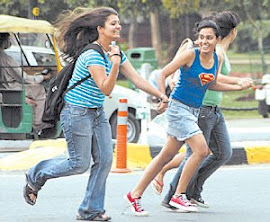Life After Death PART XXVIII (All Existence is Spiritual)
THERE was an officer among the retinue of Simha who had heard of the discourses of the Blessed One, and there was some doubt left in his heart. This man came to the Blessed One and said: "It is said, O Lord, that the samana Gotama denies the existence of the soul. Do they who say so speak the truth, or do they bear false witness against the Blessed One
And the Blessed One said: "There is a way in which those who say so are speaking truly of me; on the other hand, there is a way in which those who say so do not speak truly of me. The Tathagata teaches that there is no self. He who says that the soul is his self and that the self is the thinker of our thoughts and the actor of our deeds, teaches a wrong doctrine which leads to confusion and darkness. On the other hand, the Tathagata teaches that there is mind. He who understands by soul mind, and says that mind exists, teaches the truth which leads to clearness and enlightenment."
The officer said: "Does, then, the Tathagata maintain that two things exist? that which we perceive with our senses and that which is mental?"
Said the Blessed One: "I say to thee, thy mind is spiritual, but neither is the sense-perceived void of spirituality. The bodhi is eternal and it dominates all existence as the good law guiding all beings in their search for truth. It changes brute nature into mind, and there is no being that cannot be transformed into a vessel of truth."
Identity and Non-Identity KUTADANTA, the head of the Brahmans in the village of Danamati, having approached the Blessed One respectfully, greeted him and said: "I am told, O samana, that thou art the Buddha, the Holy One, the All-knowing, the Lord of the world. But if thou wert the Buddha, wouldst thou not come like a king in all thy glory and power?" Said the Blessed One: "Thine eyes are holden. If the eye of thy mind were undimmed thou couldst see the glory and the power of truth." Said Kutadanta: "Show me the truth and I shall see it. But thy doctrine is without consistency. If it were consistent, it would stand; but as it is not, it will pass away." The Blessed One replied: "The truth will never pass away."Kutadanta said: "I am told that thou teachest the law, yet thou tearest down religion. Thy disciples despise rites and abandon immolation, but reverence for the gods can be shown only by sacrifices. The very nature of religion consists in worship and sacrifice." Said the Buddha: "Greater than the immolation of bullocks is the sacrifice of self. He who offers to the gods his evil desires will see the uselessness of slaughtering animals at the altar. Blood has no cleansing power, but the eradication of lust will make the heart pure. Better than worshiping gods is obedience to the laws of righteousness."
Kutadanta, being of a religious disposition and anxious about his fate after death, had sacrificed countless victims. Now he saw the folly of atonement by blood. Not yet satisfied, however, with the teachings of the Tathagata, Kutadanta continued: "Thou believest, O Master, that beings are reborn; that they migrate in the evolution of life; and that subject to the law of karma we must reap what we sow. Yet thou teachest the non-existence of the soul! Thy disciples praise utter self-extinction as the highest bliss of Nirvana. If I am merely a combination of the sankharas, my existence will cease when I die. If I am merely a compound of sensations and ideas and desires, whither can I go at the dissolution of the body?" Said the Blessed One: "O Brahman, thou art religious and earnest. Thou art seriously concerned about thy soul. Yet is thy work in vain because thou art lacking in the one thing that is needful. There is rebirth of character, but no transmigration of a self. Thy thought-forms reappear, but there is no ego-entity transferred. The stanza uttered by a teacher is reborn in the scholar who repeats the words. "Only through ignorance and delusion do men indulge in the dream that their souls are separate and self-existent entities. Thy heart, O Brahman, is cleaving still to self; thou art anxious about heaven but thou seekest the pleasures of self in heaven, and thus thou canst not see the bliss of truth and the immortality of truth. I say to thee: The Blessed One has not come to teach death, but to teach life, and thou discernest not the nature of living and dying. This body will be dissolved and no amount of sacrifice will save it. Therefore, seek thou the life that is of the mind. Where self is, truth cannot be; yet when truth comes, self will disappear. Therefore, let thy mind rest in the truth; propagate the truth, put thy whole will in it, and let it spread. In the truth thou shalt live forever. Self is death and truth is life. The cleaving to self is a perpetual dying, while moving in the truth is partaking of Nirvana which is life everlasting."Then Kutadanta said: "Where, O venerable Master, is Nirvana?" "Nirvana is wherever the precepts are obeyed replied the Blessed One. "Do I understand thee aright," rejoined the Brahman, "That Nirvana is not a place, and being nowhere it is without reality?" "Thou dost not understand me aright," said the Blessed One, "Now listen and answer these questions: Where does the wind dwell
"Nowhere," was the reply.
Buddha retorted: "Then, sir, there is no such thing as wind." Kutadanta made no reply; and the Blessed One asked again: "Answer me, O Brahman, where does wisdom dwell? Is wisdom a locality?"
"Wisdom has no allotted dwelling-place replied Kutadanta. Said the Blessed One: "Meanest thou that there is no wisdom, no enlightenment, no righteousness, and no salvation, because Nirvana is not a locality? As a great and mighty wind which passeth over the world in the heat of the day, so the Tathagata comes to blow over the minds of mankind with the breath of his love, so cool, so sweet, so calm, so delicate; and those tormented by fever assuage their suffering and rejoice at the refreshing breeze."
Said Kutadanta: "I feel, O Lord, that thou proclaimest a great doctrine, but I cannot grasp it. Forbear with me that I ask again: Tell me, O Lord, if there be no atman [soul], how can there be immortality? The activity of the mind passeth, and our thoughts are gone when we have done thinking."
Buddha replied: "Our thinking is gone, but our thoughts continue. Reasoning ceases, but knowledge remains." Said Kutadanta: "How is that? Are not reasoning and knowledge the same?"
The Blessed One explained the distinction by an illustration: "It is as when a man wants, during the night, to send a letter, and, after having his clerk called, has a lamp lit, and gets the letter written. Then, when that has been done, he extinguishes the lamp. But though the writing has been finished and the light has been put out the letter is still there. Thus does reasoning cease and knowledge remain; and in the same way mental activity ceases, but experience, wisdom, and all the fruits of our acts endure."
Kutadanta continued: "Tell me, O Lord, pray tell me, where, if the sankharas are dissolved, is the identity of my self. If my thoughts are propagated, and if my soul migrates, my thoughts cease to be my thoughts and my soul ceases to be my soul. Give me an illustration, but pray, O Lord, tell me, where is the identity of my self?"
Said the Blessed One: "Suppose a man were to light a lamp; would it burn the night through?" "Yes, it might do so," was the reply.
.jpg)








.jpg)

0 comments:
Post a Comment